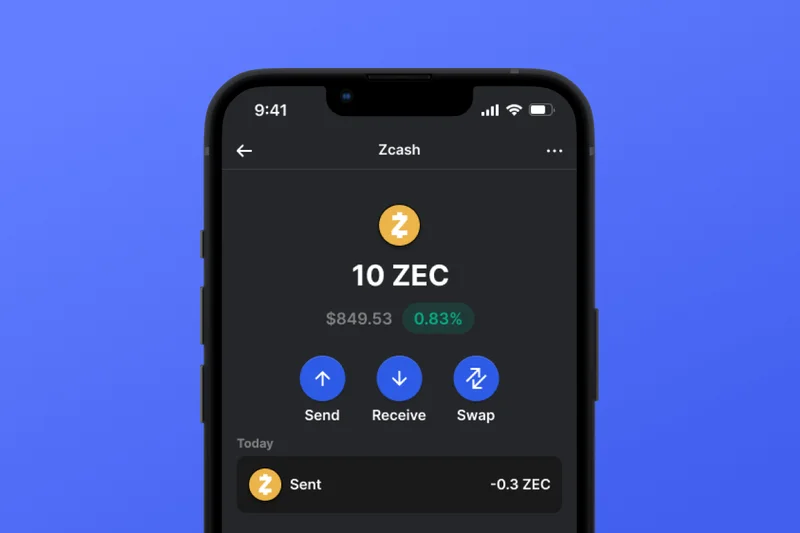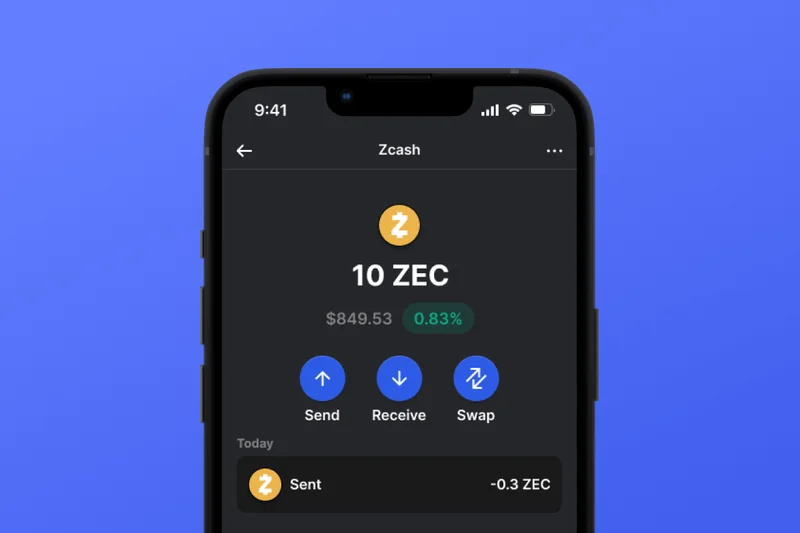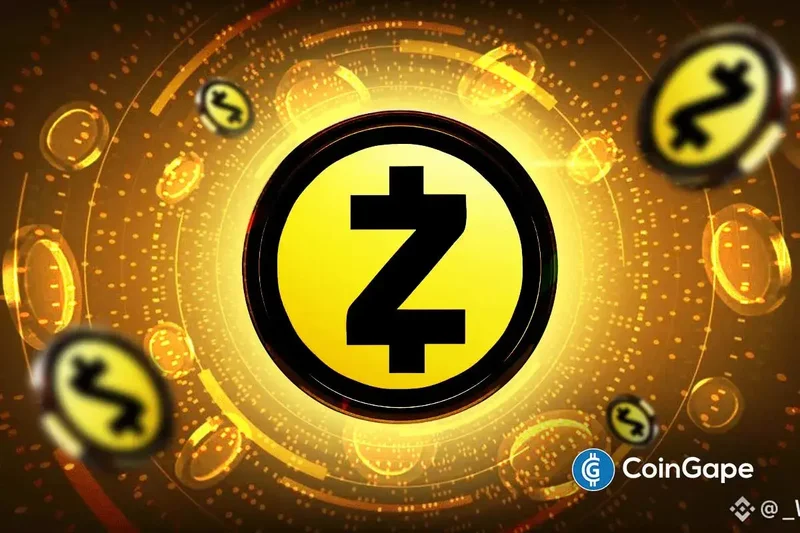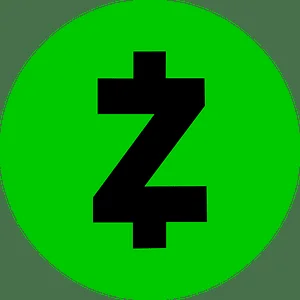Article Directory
If you’ve been watching the crypto space, you’ve felt it. A tremor. A sudden shift in the energy that has nothing to do with the daily noise of Bitcoin or Ethereum. For years, one of the most important projects in the digital world has been quietly, stubbornly surviving a brutal winter. It’s been battered by regulators, dismissed by fair-weather investors, and written off as a relic of a bygone era.
And now, it’s roaring back.
I’m talking about Zcash (ZEC). And what we’re witnessing isn’t just another coin pumping on a chart; it’s the powerful, undeniable resurgence of an idea we were told was obsolete: the right to financial privacy.
At its core, Zcash is built on a simple, profound question: In a digital world where every click, every purchase, and every transaction is tracked, do we have a right to a private life? Zcash answers with a resounding "yes." Launched in 2016 as a fork of Bitcoin, it introduced a revolutionary choice. While Bitcoin’s ledger is a public book where every transaction is visible to all, Zcash gives you the option to draw the curtains. It uses a groundbreaking cryptographic method called zero-knowledge proofs—in simpler terms, it’s a way to prove a transaction is valid without revealing the sender, the receiver, or the amount. It’s digital cash, with the privacy of physical cash.
For a long time, that idea seemed to be on the losing side of history. The story of Zcash from 2017 to 2024 is a painful one. After an initial, absurdly hyped launch that saw it touch over $3,000, the coin entered a seemingly endless decline. It was crushed in the 2018 bear market, losing over 90% of its value. It languished through the long “crypto winter” of 2019. And just as things started looking up, the regulatory hammer came down.
Starting in Japan and South Korea and spreading globally, exchanges began delisting privacy coins. The narrative was set: privacy was a dirty word, a tool for criminals. By 2023, with giants like OKX joining the delisting trend, many declared the dream of private digital money dead. Zcash hit a gut-wrenching low of just over $21.
But an idea doesn’t die just because it’s unpopular. While the market panicked, the developers at the Electric Coin Company kept building. They upgraded the protocol. They improved the efficiency of the privacy tech. They even found a clever way to work with exchanges like Binance, allowing for transparent-only addresses to satisfy compliance needs while preserving the core privacy function for its users. They endured.
And then, 2025 happened.
When I saw the chart break its eight-year downtrend, soaring more than 70% in a single month, I honestly just sat back in my chair, speechless. This wasn't just a number going up, it was the digital equivalent of a seed sprouting through concrete after years of being buried—a testament to the sheer, stubborn resilience of a powerful idea. The price surged from a low of $38 in early September to over $75. The network’s hashrate, a measure of miner confidence, jumped 30% in two months. Trading volume exploded. This wasn’t a fluke. It was a breakout.
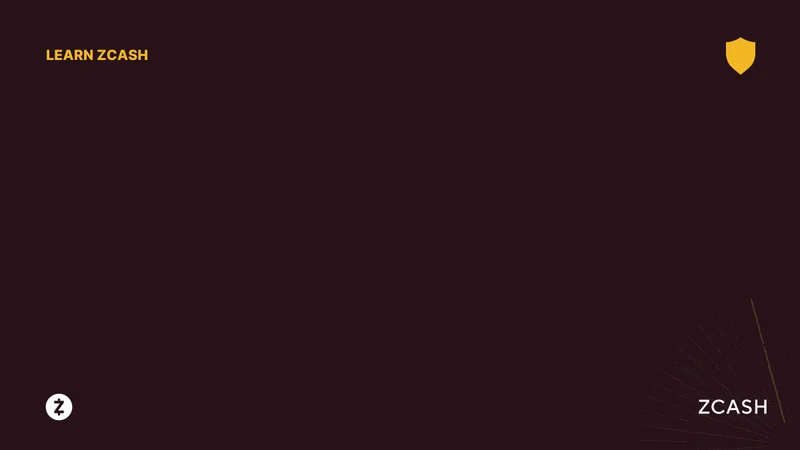
What changed? The technology finally met the moment. Upgrades like Zashi CrossPay are making private transactions more accessible. But more importantly, the world is waking up. In an era of constant surveillance, the need for a private sphere of life is no longer a niche concern for cypherpunks; it’s a mainstream human desire. We’re seeing builders from other ecosystems, like Mert Mumtaz of Solana, publicly championing Zcash’s superior privacy tech over competitors like Monero. We’re seeing a groundswell of support recognizing that the freedom to transact is fundamental.
More Than Code: A Declaration of Digital Sovereignty
The Echo in the Code
Every so often, a technology emerges that feels like a direct echo of a fundamental human struggle. The printing press wasn't just about putting ink on paper; it was about the freedom of information against the control of scribes and monarchs. The early internet wasn't just about connecting computers; it was about the freedom of communication against the bottleneck of centralized media.
I see the same pattern in the code of Zcash. This isn't just a better way to send money. It’s a tool for individual sovereignty in a world that desperately wants to take it away. Can you imagine a future where every donation you make, every subscription you buy, every person you pay is logged on a permanent, public database for governments or corporations to analyze? Zcash is a powerful hedge against that dystopian future.
Of course, with great power comes great responsibility. The debate around privacy will always include difficult questions about illicit use. But to abandon the tool of privacy for everyone because a few might misuse it is like banning cash. It’s a profound mistake. Zcash, with its selective disclosure features—allowing users to reveal transaction details to trusted parties like auditors if they choose—offers a sophisticated, balanced path forward. It proves that privacy and compliance don’t have to be enemies.
What we're seeing now is the market finally catching up to this reality. Analysts like Javon Marks are holding firm on ambitious targets near $300, not because of hype, but because the technical breakout from a multi-year slumber is just that significant. FXEmpire points to the confluence of rising fundamentals and price action, calling a move to $75 "highly likely" and eyeing $100 as the next major psychological barrier. The charts are telling a story of awakening.
The question is no longer if privacy will have a place in our digital future, but what we will build with it now that it has proven it’s here to stay.
The Unbreakable Idea
Zcash’s resurgence isn’t a market cycle. It’s a referendum on privacy, and the verdict is in. In a world rushing toward total transparency, the demand for a private digital space isn't just a feature—it's the most human need of all. This is the foundation of the next economy.
Reference article source:

